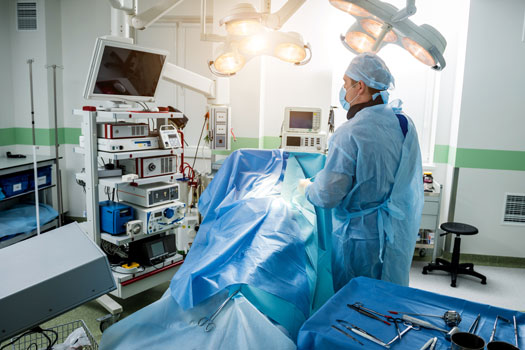
A discectomy is a commonly performed procedure often done to relieve pressure on nerves near the spine by removing the affected disc. It's typically recommended when a herniated or damaged spinal disc (sometimes referred to as a “ruptured” or “bulging” disc) is contributing to severe or persistent discomfort or affecting quality of daily life. Here's what you need to know about the process of recovering from this procedure and how long it usually takes.
Initial Recovery from a Discectomy
After a discectomy, most patients experience immediate relief from the symptoms of their disc herniation. However, during the first few days after a discectomy, it's normal to experience some degree of pain and fatigue, as with any surgical procedure. While these are signs your body is healing, be aware of anything that seems out of the ordinary to you. For instance, if you notice an unusual spike in pain or issues with the wound site, contact your surgeon or primary care physician.
Patients are usually encouraged to walk and make an effort to get around a few days after having a discectomy. This is done to strengthen the muscles that support your spine and maintain flexibility. If you rest too much, soft tissues can weaken and stiffen, which places more pressure on the part of your spine that's healing. It's also important to follow the post-procedure instructions you'll be given. Typically, patients are advised to:
• Not bend or lift anything heavy
• Avoid strenuous activities
• Sleep in a comfortable, supportive position
You'll also be given guidance on bathing and showering and other daily activities. Feel free to ask questions of your surgeon or contact person if you're not sure what you can safely do during the initial phase of recovery.
Ongoing Recovery & Improvement
Recovery from a discectomy can be a gradual process. You'll be starting with lighter activities and gradually returning to your preferred routine at a pace that's comfortable for you. According to Spine Health, driving and other basic activities can typically be resumed after about two weeks.
It's usually about a month or so before routine activities like going to work or school and participating in nonstrenuous hobbies or activities can be safely resumed. Full recovery to the point where you can get back to more demanding activities safely usually takes about three months. Your complete recovery time also depends on:
• How the procedure was done
• Your overall health and wellbeing
• How well any underlying health issues such as diabetes are managed
• How you respond to post-procedure therapy recommendations
Making Discectomy Recovery More Productive
Your recovery from a discectomy can be more beneficial and productive if you're well prepared as you ease from one phase of recovery to the next. A convenient way to accomplish this goal is to make preparations for your recovery before your procedure. This is something you can do by:
• Ordering your post-operative medication in advance
• Arranging for someone to drive you home after the surgery
• Asking family members and/or friends to help out with more demanding household tasks as you recover
• Preparing meals you can freeze and heat up
• Setting up a first-floor sleeping area
Back surgery recovery time varies among individuals and depends on factors such as whether the patient has a large hole in the outer ring of the disc after surgery. If the hole in the disc is larger than a standard pencil eraser, the patient has a significant risk of experiencing a reherniation. In fact, 70 percent of all reherniations come from these larger holes in the disc. These reherniations often require additional surgery or even a larger spinal fusion operation. Fortunately, there’s a new treatment available: Barricaid. Barricaid is a bone-anchored device shown to reduce reherniations by closing the hole in the disc after a discectomy, and it was proven 95 percent effective in a study of over 500 patients. This means 95 percent of Barricaid patients didn’t undergo a reoperation due to reherniation in the 2-year study timeframe.
If you have any questions about the Barricaid treatment or how to get access to Barricaid, you may ask your doctor or contact us at 844-288-7474.
For full benefit/risk information, please visit: https://www.barricaid.com/instructions.


Comments